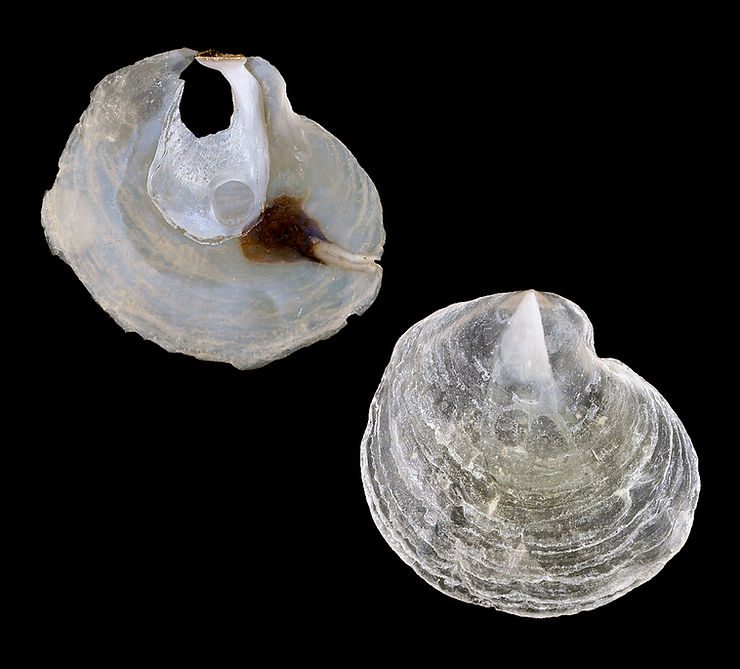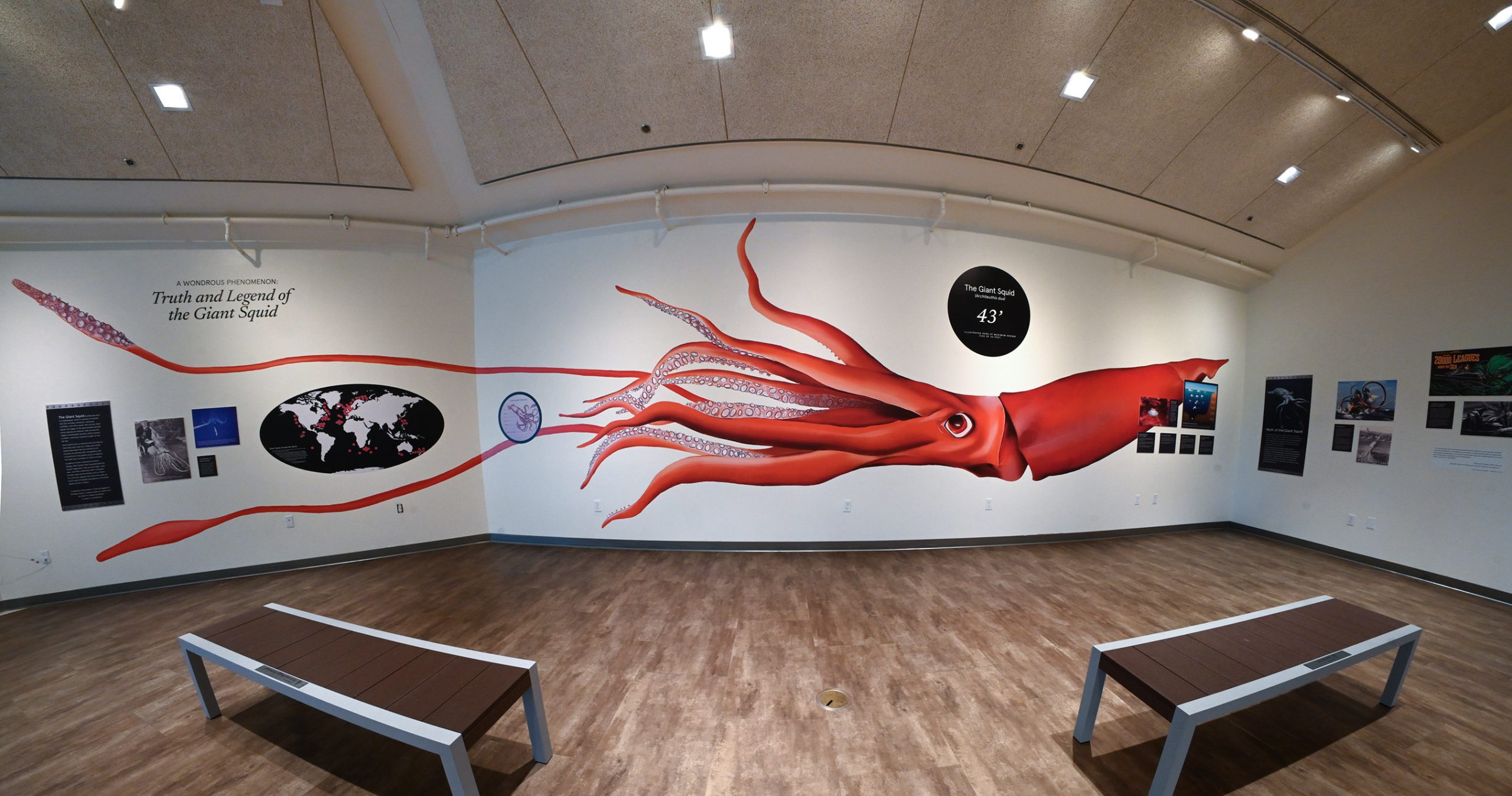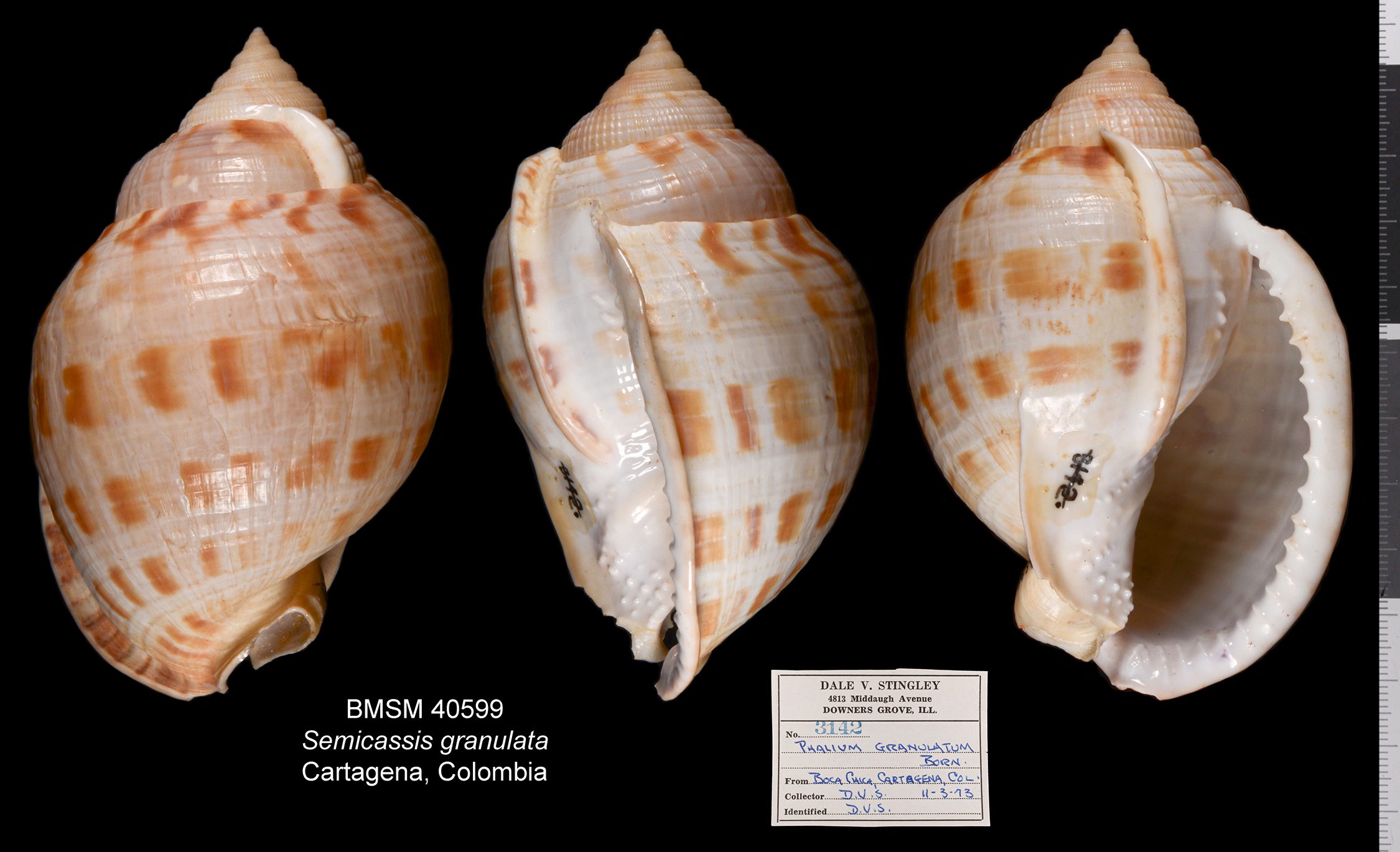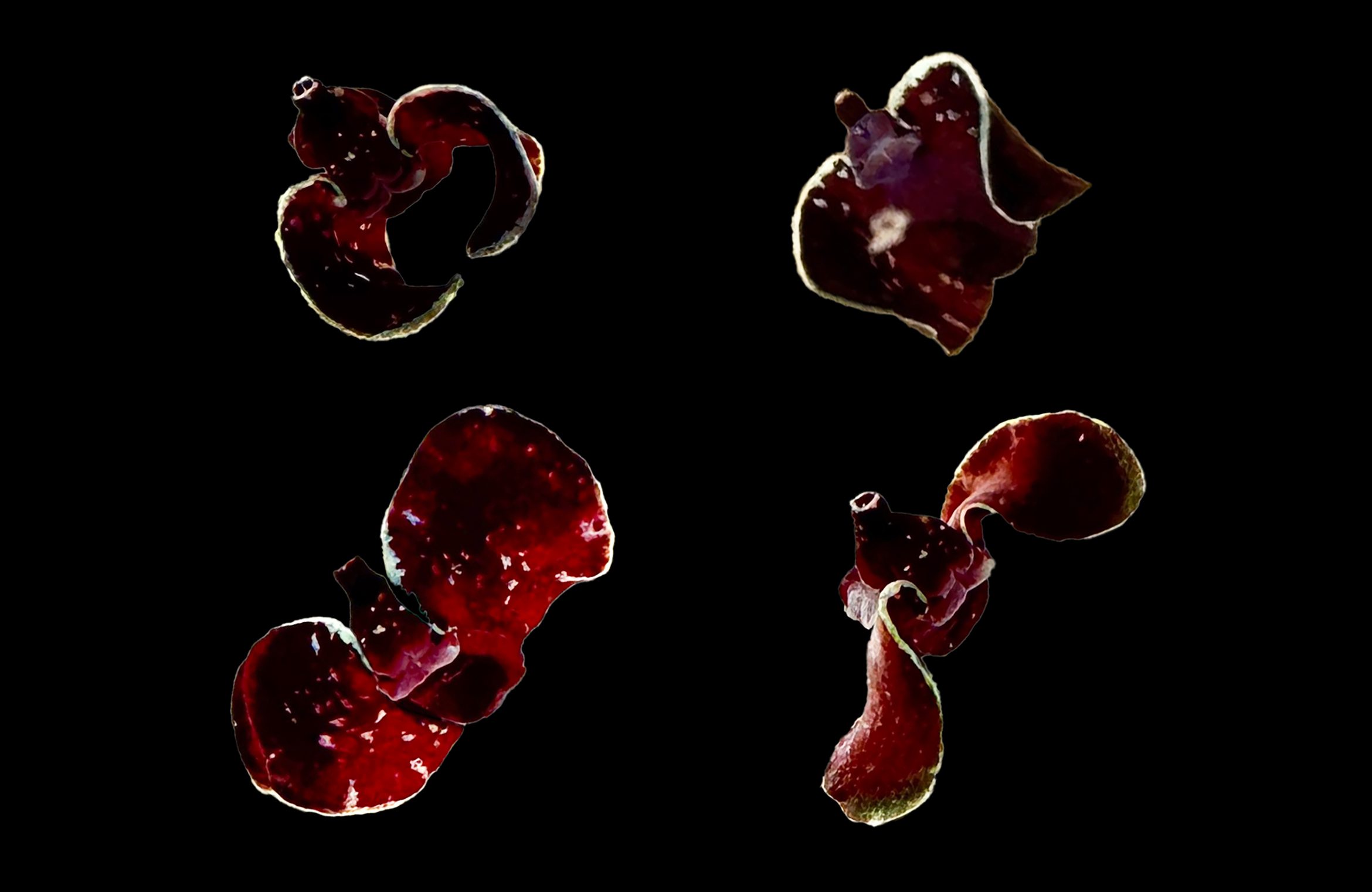The Common Jingle, Anomia simplex d’Orbigny, 1853, is one of the most common species found on our very shelly shores. Common Jingles are always iridescent (like mother-of-pearl) and come in an assortment of colors: orange, yellow, white, clear, and that lead-gray that is so characteristic of the species. They are bivalves, so there are two halves for each shell. Most of the time, however, shellers find only the top valve: the bottom valve has the hole that is typical for members of the family Anomiidae (see photo) and is less commonly found on our beaches. Common Jingles are permanently attached to rocks or other shells, and the hole on the bottom valve allows for passage of the byssus, the structure that attaches the bivalve to those hard structures. The byssus of Common Jingles is entirely calcified (same material as the shell), unlike the hair-like, fibrous byssus of mussels and Pen Shells.

The photo shows a Common Jingle from Sanibel. Photos by José H. Leal.


